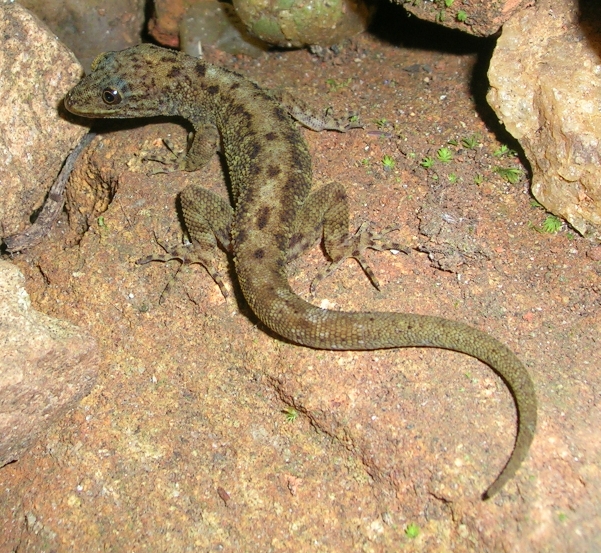|
Cnemaspis Nilgala
''Cnemaspis nilgala'', also known as Nilgala day gecko, is a species of diurnal gecko endemic to island of Sri Lanka Sri Lanka (, ; si, ශ්රී ලංකා, Śrī Laṅkā, translit-std=ISO (); ta, இலங்கை, Ilaṅkai, translit-std=ISO ()), formerly known as Ceylon and officially the Democratic Socialist Republic of Sri Lanka, is an .... Description Adult is relatively smaller than other ''Cnemaspis'' species, ranges SVL 31.5–32.9 mm in length. Dorsal scales are homogeneous. Smooth ventral scales on trunk. 17–19 scales found across the belly. 122–129 ventral scales and 7–8 supralabials. Subdigitals scansors unnotched. precloacal pores are absent in males. References Cnemaspis Endemic fauna of Sri Lanka Reptiles of Sri Lanka Reptiles described in 2019 {{Cnemaspis-stub ... [...More Info...] [...Related Items...] OR: [Wikipedia] [Google] [Baidu] |
Gecko
Geckos are small, mostly carnivorous lizards that have a wide distribution, found on every continent except Antarctica. Belonging to the infraorder Gekkota, geckos are found in warm climates throughout the world. They range from . Geckos are unique among lizards for their vocalisations, which differ from species to species. Most geckos in the family Gekkonidae use chirping or clicking sounds in their social interactions. Tokay geckos (''Gekko gecko'') are known for their loud mating calls, and some other species are capable of making hissing noises when alarmed or threatened. They are the most species-rich group of lizards, with about 1,500 different species worldwide. All geckos, except species in the family Eublepharidae lack eyelids; instead, the outer surface of the eyeball has a transparent membrane, the cornea. They have a fixed lens within each iris that enlarges in darkness to let in more light. Since they cannot blink, species without eyelids generally lick t ... [...More Info...] [...Related Items...] OR: [Wikipedia] [Google] [Baidu] |
Sri Lanka
Sri Lanka (, ; si, ශ්රී ලංකා, Śrī Laṅkā, translit-std=ISO (); ta, இலங்கை, Ilaṅkai, translit-std=ISO ()), formerly known as Ceylon and officially the Democratic Socialist Republic of Sri Lanka, is an island country in South Asia. It lies in the Indian Ocean, southwest of the Bay of Bengal, and southeast of the Arabian Sea; it is separated from the Indian subcontinent by the Gulf of Mannar and the Palk Strait. Sri Lanka shares a maritime border with India and Maldives. Sri Jayawardenepura Kotte is its legislative capital, and Colombo is its largest city and financial centre. Sri Lanka has a population of around 22 million (2020) and is a multinational state, home to diverse cultures, languages, and ethnicities. The Sinhalese are the majority of the nation's population. The Tamils, who are a large minority group, have also played an influential role in the island's history. Other long established groups include the Moors, the Burghers ... [...More Info...] [...Related Items...] OR: [Wikipedia] [Google] [Baidu] |
Cnemaspis
''Cnemaspis'' is a genus of diurnal (day) geckos found in Asia. With over 100 species, it is one of the most diverse genera of geckos. Molecular phylogenies suggest that the two regional groupings may form distinct clades which are not each other's closest relatives. Description Species in this genus have slender, clawed digits which are cylindrical or depressed at the base (rarely dilated); the distal phalanges are compressed, forming an angle with the basal portion of the digits, the lower surface of which has a row of plates. Their bodies are more or less depressed, granular or tubercular above. Tail not compressed. Pupil circular; eyelid distinct all round the eye. Males with or without pre-anal or femoral pores. Species The Indian Subcontinent and Sri Lanka group *'' C. aaronbaueri'' Sayyed, Grismer, Campbell & Dileepkumar, 2019 *'' C. adii'' C. Srinivasulu, Kumar & B. Srinivasulu, 2015 – Adi's day gecko *'' C. agarwali'' Khandekar, 2019 – Agarwal's dwarf gec ... [...More Info...] [...Related Items...] OR: [Wikipedia] [Google] [Baidu] |
Endemic Fauna Of Sri Lanka
Endemism is the state of a species being found in a single defined geographic location, such as an island, state, nation, country or other defined zone; organisms that are indigenous to a place are not endemic to it if they are also found elsewhere. For example, the Cape sugarbird is found exclusively in southwestern South Africa and is therefore said to be ''endemic'' to that particular part of the world. An endemic species can be also be referred to as an ''endemism'' or in scientific literature as an ''endemite''. For example '' Cytisus aeolicus'' is an endemite of the Italian flora. '' Adzharia renschi'' was once believed to be an endemite of the Caucasus, but it was later discovered to be a non-indigenous species from South America belonging to a different genus. The extreme opposite of an endemic species is one with a cosmopolitan distribution, having a global or widespread range. A rare alternative term for a species that is endemic is "precinctive", which applies to ... [...More Info...] [...Related Items...] OR: [Wikipedia] [Google] [Baidu] |
Reptiles Of Sri Lanka
This is a list of reptiles of Sri Lanka. The reptilian diversity in Sri Lanka is higher than the diversity of other vertebrates such as mammals and fish with 181 reptile species. All extant reptiles are well documented through research by many local and foreign scientists and naturalists. Sri Lankan herpetologist, Anslem de Silva largely studied the biology and ecology of Sri Lanka snakes, where he documented 96 species of land and sea snakes. Five genera are endemic to Sri Lanka - ''Aspidura'', ''Balanophis'', ''Cercaspis'', ''Haplocercus'', and ''Pseudotyphlops''. Out of them only five of the land snakes are considered potentially deadly and life threatening to humans. Among snakes, 54 are endemic to Sri Lanka. The total increased to 107 with new descriptions of ''Dendrelaphis'', ''Rhinophis'', ''Aspidura'' and ''Dryocalamus''. Lizard diversity in the island has been documented and studied by many local scientists and researchers such as Imesh Nuwan Bandara, Kalana Maduwage, Anj ... [...More Info...] [...Related Items...] OR: [Wikipedia] [Google] [Baidu] |


.jpg)
.jpg)